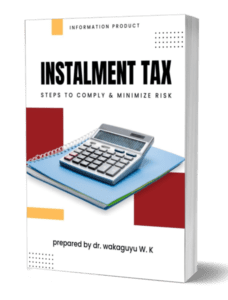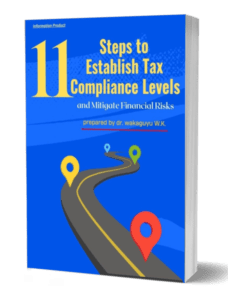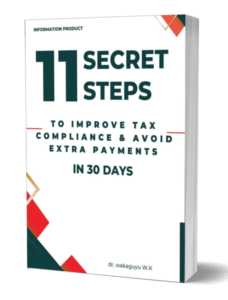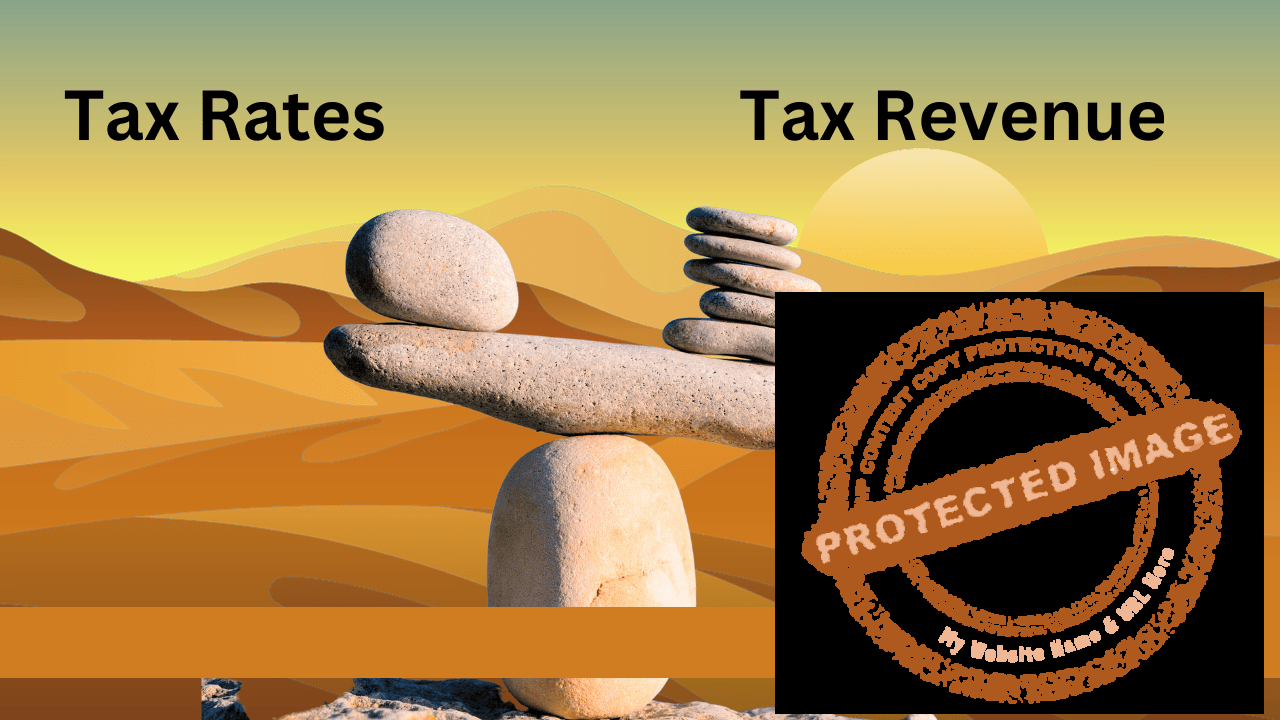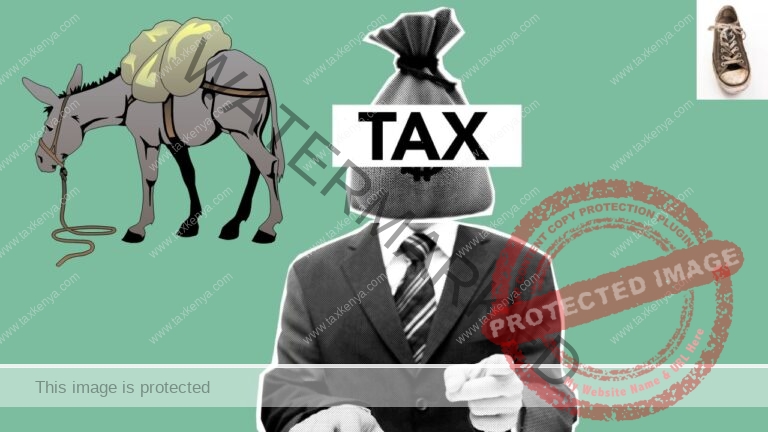Every day, we ask what a government can do to manoeuvre the delicate balance between tax rates and revenue. The effect of tax rates on a nation’s fiscal policy is substantial. Higher tax rates are occasionally considered a strategy to increase government revenue, but several consequences could result in lower tax collection.
a. Affiliate Disclosure: These are affiliate links from which we receive a commission at no cost. Read the full Affiliate marketing disclosure HERE.
b. Tax Contents Disclaimer: The tax industry in Kenya is very dynamic. The tax contents of the posts are not professional advice. Read the full disclosure HERE.
In this article, we shed light on eleven factors that may cause revenue collection to decrease with higher tax rates. These factors will highlight the intricacies of balancing the country’s tax policy.
We will examine seven proactive steps the governments can take to boost tax revenue without having to hike tax rates. These steps will promote tax compliance, broaden the tax base, and aid in developing more effective and equitable tax systems.
Can an Increase in Tax Rates Decrease Tax Revenue?
Global experience has shown that increase in tax rates more often than not results in decrease in tax revenue. The question is why? The following 11 factors may offer an explanation for this occurence.
Reason 1: Tax Evasion and Avoidance
High tax rates can incentivise taxpayers to look for legal ways to reduce their tax obligations. For example, they can use tax havens, tax loopholes, or aggressive tax planning methods. As taxpayers develop creative ways to pay less tax, the government’s ability to collect taxes is threatened.
Reason 2: Low Incentive to Invest and Work
High tax rates can demotivate people to work longer hours or invest in their businesses. A person with a significant portion of their income removed paid as tax may put up less effort, produce less, and be less motivated to work. This ultimately results in the reduction of total taxable income.
Reason 3: Capital Flight
High tax rates can result in capital flight as wealthy individuals and businesses seek out tax havens. This entails moving resources, capital, and occasionally entire businesses to countries with friendlier tax regimes. As a result, taxable wealth decreases, and the home country may lose tax revenue.
Reason 4: Low Economic Growth
High tax rates can impede economic growth in the country. Higher tax burdens on taxpayers may cause them to scale back on plans for growth, hiring, and operating expenditures. This decline in business expansion plans hurts the health of the business, the overall economy, and tax revenue receipts. Overall, there will be slow economic growth.
Reason Number 5: Tax Incidence
When tax rates are increased, taxpayers increase their prices to transfer the cost of the extra taxes to customers. This limits consumer spending, lowers tax receipts and has ripple effects on the economy as a whole. A higher tax burden on consumers generates less tax money for the government.
Reason Number 6: Compliance Costs
As taxes become complicated, taxpayers may need to set aside more resources for tax compliance. This means hiring tax professionals and setting aside more time to fulfil tax obligations. These expenses have a direct impact on the overall amount of taxes that the government collects.
Reason 7: Laffer Curve Effect
The Laffer Curve demonstrates that there is an ideal tax rate at which tax receipts begin to decline. When tax rates are excessively high, people may engage in less of the formal and more of the informal sectors, lowering their taxable income. This unexpected outcome might lead to lower tax receipts even with higher tax rates.
Reason 8: Brain Drain
Higher tax rates are fuel for brain drain. Talented workers and business owners may relocate to locations with lower tax rates. This may cause a “brain drain” due to high tax rates. Because of the talent exodus, a country’s economic productivity and capacity for innovation may decrease, eventually lowering taxable income and resulting in lower tax revenue.
Reason 9: Savings Discouragement
For a country to collect more taxes, efforts must be put towards investing or saving money. High tax rates may discourage people from investing or saving money. When earnings from savings and investments, for example, on interest capital gains, income, and dividends, are heavily taxed, taxpayers are less likely to invest their money. In addition to impeding personal financial growth, this will reduce tax collection from investment income.
Reason 10: Slower Business Expansion
For businesses to grow, they need to invest. High corporate tax rates will limit taxpayers’ ability to expand their business. To escape the higher taxation on their income, businesses may invest less in growth initiatives. This will result in slower growth and a smaller tax base.
Reason 11: Low Consumer Spending
High taxes may reduce consumers’ disposable income and prevent them from purchasing. People spend less money as a result of higher tax rates, which has an impact on business profits. This results in taxpayers’ lowered ability to contribute to tax revenues. A decrease in consumer spending will lead to decreased tax revenue.
It is essential to remember that the impact of higher tax rates on revenue collection can vary. This will depend on numerous factors, such as the specific tax policy, the status of the economy in general, and the behaviour of the taxpayers. The government must frequently balance boosting tax collections and preventing tax rates from deterring economic growth or encouraging tax fraud.
Steps the Government Can Take
Governments can take several steps to increase tax revenue collection while keeping tax rates high. This will enable the tax policy to remain revenue-effective and supportive of economic growth and tax compliance in the country. The steps will improve tax compliance and broaden the tax base without raising tax rates.
The following seven steps are crucial:
#1. Enhance Tax Compliance
The government can enhance compliance with early tax detection strategies for tax avoidance and tax evasion. The government can invest in more effective tax enforcement strategies, such as technology, data analytics, and trained personnel. As a deterrence, the government can impose severe tax evasion penalties.
#2. Tax Evasion and Avoidance Loopholes
The government should close current tax loopholes that permit taxpayers and businesses to avoid and evade taxes. Legislative changes may be required to simplify tax laws and make them less prone.
#3. Improve Taxpayer Education and Outreach
Tax literacy levels are low. It is essential to improve tax literacy levels because informed taxpayers are more likely to comply willingly and truthfully. Public awareness of tax obligations, deductions, and credits is critical to enhancing tax literacy and outreach.
#4. Tax Returns and Payment Processes
Complex tax return filings and payment processes may decrease the tax revenue receipts by the government. The government should simplify and enhance the tax return filing and payment processes. For example, the government can introduce pre-filled tax forms and electronic filing to reduce errors and encourage on-time payments.
#5. Broaden the Tax Base
The government should consider broadening the income or activities subject to taxation by expanding the tax base. For example, the government can consider levying taxes on formerly exempt industries, such as digital services, or reviewing tax cuts and exemptions that shrink the tax base are two ways to do this.
#6. High-Net-Worth Taxpayers
The government can implement progressive tax policies aimed at taxpayers with high incomes. These are high-net-worth taxpayers, both individuals and businesses. Some of the steps that the government can take are, for example, increasing tax rates for high-net-worth taxpayers, banning the use of tax havens by resident taxpayers, and auditing large businesses.
#7. Information Sharing
The government should participate in Information sharing and international Cooperation. This can be done by joining forces with other nations to share financial data and combat tax evasion. Enhancing cross-border tax compliance is possible because of international accords such as the Common Reporting Standard (CRS).
By taking these steps, governments can increase tax revenue collection without relying on high tax rates, which could negatively affect the economy and tax compliance. It is essential to find a balance between tax rates and tax revenue.
Conclusion
In the context of tax policy, the balance between tax rates and revenue collection is complicated. Even though increasing tax rates is intended to increase tax revenue, it may unintentionally result in unfavourable outcomes. For example, it will limit investment, economic growth, tax avoidance, and evasion.
The government must strike a balance between tax rates and revenue. The eleven factors highlight how challenging it is to design effective and equitable tax systems.
The governments can handle the issue of increasing tax revenue in various ways without raising tax rates. Tax rates and tax revenue should be balanced for tax policy to remain revenue-effective and supportive of economic growth and compliance.
Thank you for reading the article.
Send us any feedback. Details are provided on the Contact page.
Dr. Wakaguyu
